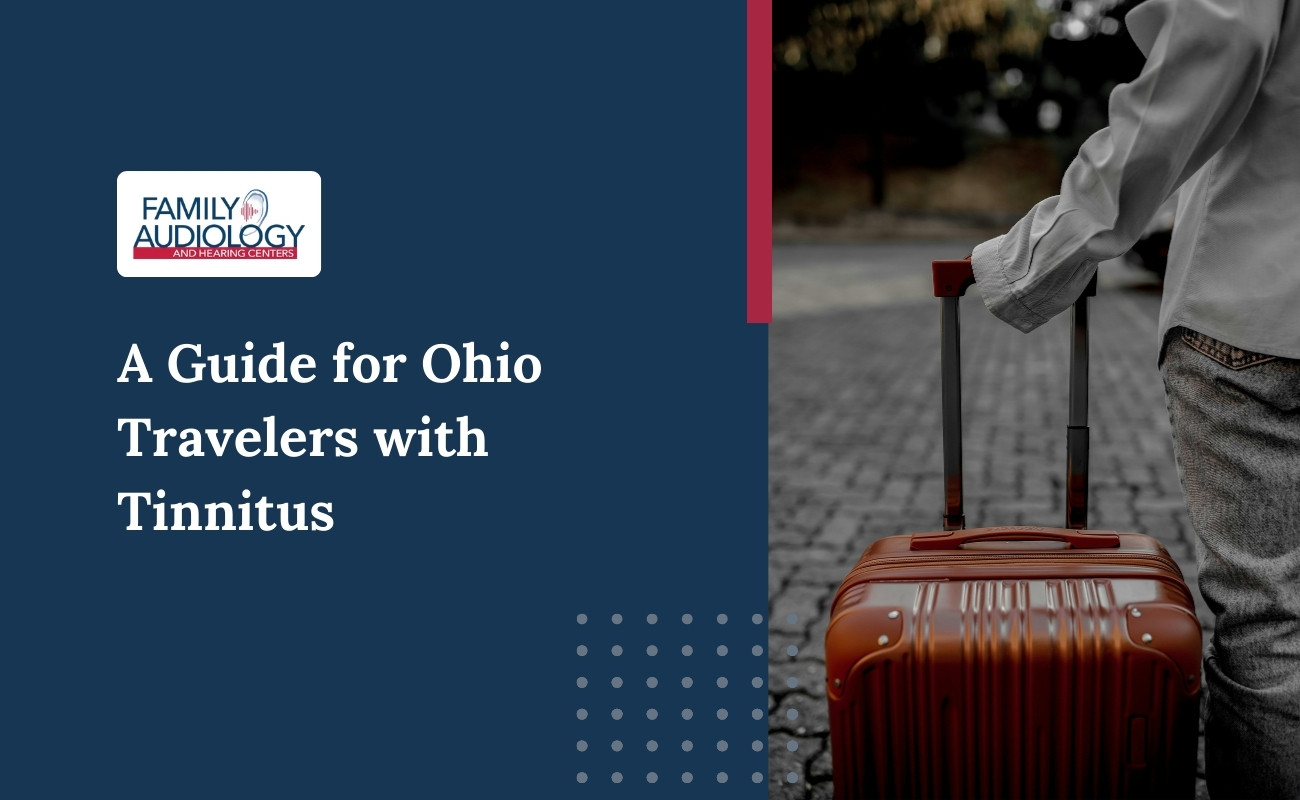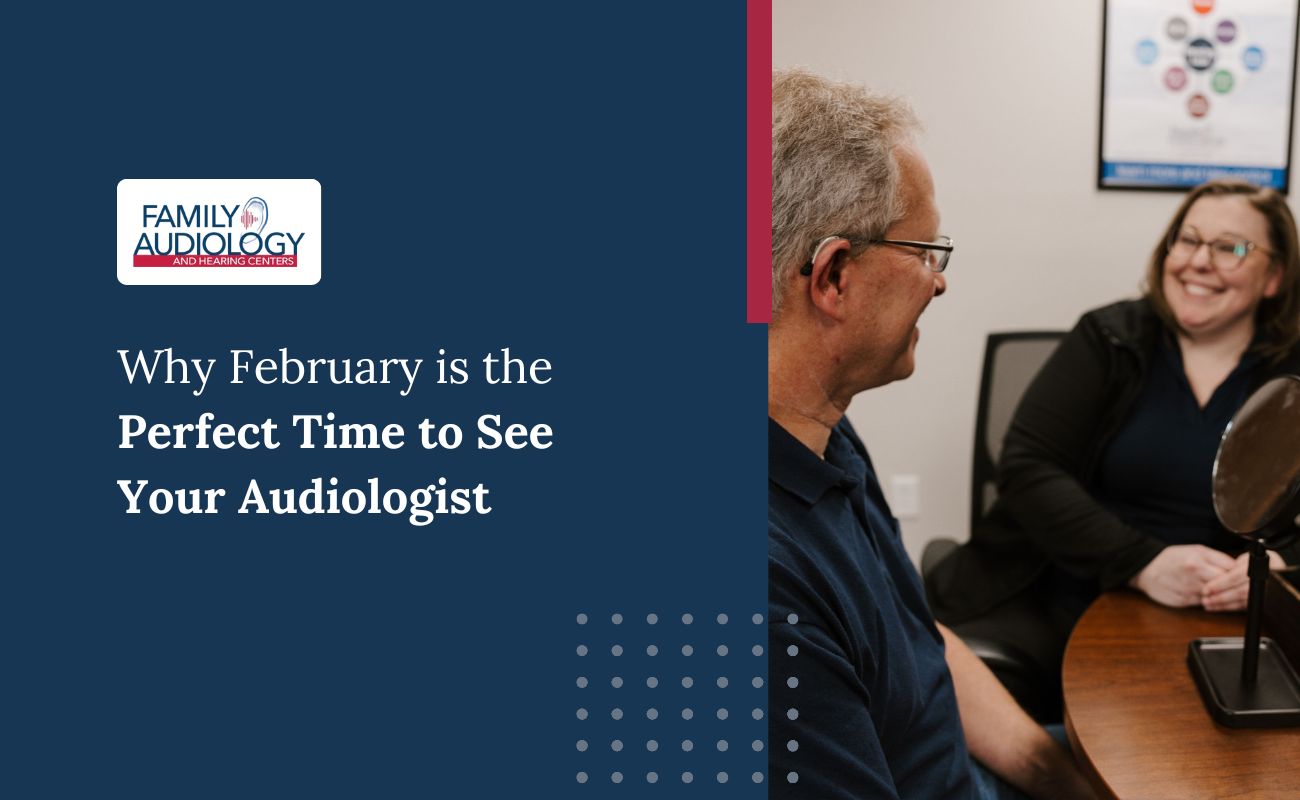A Guide for Ohio Travelers with Tinnitus



Travel offers opportunities to explore new destinations, create lasting memories, and break from daily routines. For Ohio residents living with tinnitus, however, the prospect of traveling can bring unique challenges alongside the excitement. The constant ringing, buzzing, or whistling sounds that characterize tinnitus don't pause for vacation, and changes in environment, stress levels, and daily routines can sometimes intensify symptoms.
Understanding how tinnitus interacts with travel experiences allows you to plan more effectively and enjoy your journeys with greater confidence. Whether you're planning a weekend getaway to nearby attractions or an extended international adventure, proper preparation can make all the difference in managing your symptoms while away from home.
How Tinnitus Affects Travel Experiences
Tinnitus symptoms can become more noticeable during travel for several reasons. Changes in routine often disrupt sleep patterns, which can worsen tinnitus perception. Travel stress, from planning logistics to navigating unfamiliar environments, may increase anxiety levels that heighten awareness of tinnitus sounds.
Air travel presents particular considerations for those with tinnitus. Changes in cabin pressure during takeoff and landing can temporarily affect your ears and potentially influence tinnitus symptoms. The constant background noise of aircraft engines might mask tinnitus for some travelers, while others find the combination overwhelming.
Ground transportation brings its own set of challenges. Extended periods in cars, trains, or buses can create fatigue that makes tinnitus more bothersome. Road noise, engine sounds, and other passengers can either provide helpful masking sounds or contribute to sensory overload, depending on your individual response patterns.
Accommodation environments also play a role in tinnitus management during travel. Quiet hotel rooms might make tinnitus more noticeable, particularly at night when you're trying to sleep. Conversely, rooms with poor soundproofing might expose you to disruptive noises that interfere with your usual coping strategies.
Consulting with Hearing Professionals Before Travel
Meeting with an audiologist before significant travel plans can provide valuable insights and preparation strategies tailored to your specific tinnitus patterns. We can review your current management techniques and suggest modifications that work better in travel environments.
During your pre-travel consultation, discuss your destination's characteristics and planned activities. Different environments may require adjusted approaches to tinnitus management. Beach destinations with constant wave sounds might provide natural masking, while quiet mountain retreats may require portable sound therapy devices.
Your audiologist can also evaluate whether any hearing protection needs updating before your trip. Custom hearing protection may be beneficial for flights, concerts, or other loud activities planned during your travels. We can ensure your current devices are functioning properly and provide backup options if needed.
If you use hearing aids in conjunction with tinnitus management, a pre-travel check ensures your devices are working optimally. We can verify settings, clean and inspect your hearing aids, and provide extra supplies like batteries or cleaning tools for your trip.
Pre-Travel Preparation Strategies
Successful tinnitus management during travel starts with thorough preparation at home. Create a travel kit specifically for tinnitus management that includes any sound therapy devices, apps, or other tools you regularly use. Portable sound machines, smartphone apps with masking sounds, or comfortable headphones can provide familiar relief in unfamiliar environments.
Pack extra supplies of any medications or supplements you use for tinnitus management. Bring more than you think you'll need, accounting for potential travel delays or lost luggage. Keep medications in carry-on luggage when flying to ensure access during your journey.
Research your destination's medical facilities and audiological services, particularly for extended trips. While you likely won't need professional care during a short vacation, knowing where to find help provides peace of mind and practical information if symptoms unexpectedly worsen.
Download relevant apps or prepare offline content before departure. Many sound therapy apps work without internet connection once downloaded, ensuring access to your preferred masking sounds even in areas with limited connectivity.
Consider your accommodation needs when booking lodging. Reading reviews that mention noise levels, requesting rooms away from elevators or high-traffic areas, and bringing familiar comfort items like your own pillow can help maintain sleep quality that supports tinnitus management.
Managing Tinnitus During Transit
Air travel requires specific strategies for tinnitus management. During flights, stay hydrated and avoid excessive alcohol or caffeine, which can affect tinnitus symptoms. Chewing gum or swallowing during takeoff and landing helps equalize ear pressure, potentially reducing temporary tinnitus changes.
Use noise-canceling headphones or earplugs during flights to manage cabin noise levels. Some travelers find the steady hum of aircraft engines provides helpful masking, while others prefer to minimize all sound input. Experiment with different approaches to find what works best for your symptoms.
For ground transportation, position yourself strategically when possible. Window seats might provide scenic distractions, while aisle seats offer easier movement and less feeling of confinement. Bring entertainment that engages your mind without requiring intense concentration, as focusing too hard on activities when experiencing tinnitus can increase stress.
Take regular breaks during long drives to stretch, hydrate, and give your nervous system brief respites from travel stress. Even short stops can help reset your stress levels and potentially reduce tinnitus intensity.
Effective Coping Strategies While Away
Maintaining familiar routines supports tinnitus management during travel. Try to keep regular sleep schedules when possible, even accounting for time zone changes. Your body's natural rhythms affect tinnitus perception, so preserving sleep quality helps maintain symptom stability.
Use environmental sounds to your advantage. Ocean waves, rainfall, or city sounds might provide natural masking that reduces tinnitus awareness. Many travelers find that engaging with new environments naturally draws attention away from tinnitus symptoms.
Practice relaxation techniques that work well in various settings. Deep breathing exercises, progressive muscle relaxation, or meditation can be performed in hotel rooms, airports, or other travel locations without special equipment.
Stay connected with your support system at home. Regular check-ins with family or friends provide emotional support and help maintain your usual coping patterns even when away from familiar surroundings.
Manage expectations realistically. Travel naturally involves some stress and routine disruption, which might temporarily affect tinnitus symptoms. Accepting this possibility reduces anxiety about symptom changes and helps you focus on enjoying your experiences.
Getting Professional Support for Travel Preparation
At Family Audiology and Hearing Centers, we understand that tinnitus shouldn't limit your ability to explore Ohio's attractions or travel beyond state borders. Our experienced audiologists can work with you to develop personalized travel strategies that address your specific tinnitus patterns and travel plans.
We offer comprehensive tinnitus evaluations that identify your particular triggers and effective management approaches. This information becomes the foundation for creating travel-specific coping strategies that maintain your quality of life while away from home.
Our team can also evaluate whether sound therapy devices, hearing protection, or other assistive technologies might benefit your travel experiences. We provide guidance on portable options that travel well and maintain effectiveness in various environments.
Don't let tinnitus concerns prevent you from pursuing travel opportunities that enrich your life. Contact Family Audiology and Hearing Centers today to schedule a consultation with one of our audiologists. Together, we can develop strategies that allow you to manage tinnitus effectively while creating the travel memories you deserve, whether exploring Ohio's diverse regions or venturing to destinations around the world.
Discover the Latest Articles
Stay informed with our informative articles.

Why February is the Perfect Time to See Your Audiologist
.jpg)
What Your Audiologist Checks During a Comprehensive Hearing Evaluation

How AI Technology Is Transforming Hearing Aid Performance
Contact your local Hearing Aid Specialists
At Family Audiology and Hearing Centers, we strive to be there for all your family’s hearing needs. Because of this, we have 17 convenient locations in Ohio and Wisconsin for you to visit. See which location is best for you and schedule an appointment today.


